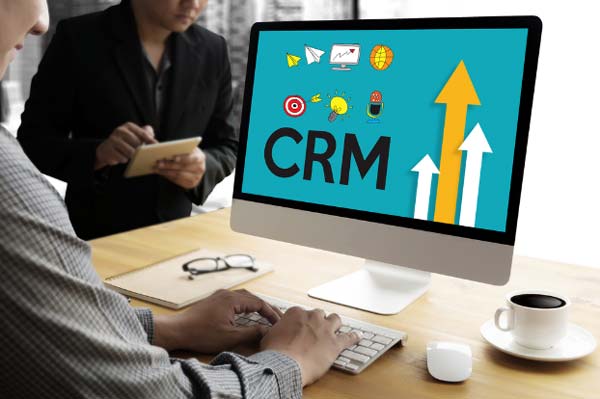Selling commercial real estate is nothing like selling a residential property. As a commercial real estate broker, you operate in a market with relatively low turnover, more substantial investments, and a particular focus on revenue and data. Commercial sales don’t involve as much emotion as a residential real estate deal but commercial real estate customer relationships are far more important.

Why Commercial Real Estate Customer Relationships Are Key
In Q1 of 2017, the average transaction value for commercial property was $876,500. That’s a considerable investment for any company, one that could potentially affect their daily operations, production, sales, or corporate culture. With those factors in mind, commercial real estate clients will look to brokers to help them understand the data they need before making a purchase.
Despite this seemingly cold approach, clients seeking a new commercial property still want to have a relationship with their broker. Trust and professionalism are the keys to having successful relationships with your clients.

You also have to talk to your clients regularly to get an understanding of what they want out of a property, their preferences on location, and other amenities. To efficiently keep track of your sales leads and client interactions, you need a commercial real estate CRM.
What is Commercial Real Estate CRM?
A commercial real estate CRM system is just that, a customer relationship management software that lets you manage your client interactions and new sales opportunities. It allows commercial real estate brokers and agents to organize notes, collect data, and quickly find information about particular properties. Commercial real estate CRM will also enable you to synthesize data about sales cycles from several sources to form a single program.
Each CRM system comes with its own capabilities. All should come with a way to track different streams including prospects, current and former clients, and the potential sales pool. Also, each CRM system should allow you to associate critical information about each lead and client like contact info, history of outreach, and notes. Having this information readily accessible makes it easier for agents to keep track of each touchpoint and when clients need to be followed up with.
A worthwhile commercial real estate CRM will improve internal processes, too. Through data collection and analysis, commercial real estate firms can find emerging markets, target customers better, and find ways to shorten the sales cycle. An effective CRM can also help improve project management and standardize tools across an organization, especially if there are several offices.
Finding the Best CRM for Your Agency

When you start searching for a commercial real estate CRM, you’ll find there are over 200 real estate CRMs to choose from. Using a site like SoftwareAdvice.com, you can narrow down your options based on how large your organization is, your price range, and overall ratings. However, this can be a long task, especially if you don’t know what to look for. Instead, you can ask questions like the following.
Does it have proven results?
You don’t want to waste your time evaluating solutions that are unproven or proven ineffective in the field. Look through software review sites and case studies to find which CRMs are worth considering and which aren’t. You should also ask other commercial real estate agents which CRMs they’ve had success with.
Will it integrate with what you already have?
Chances are you already have established software in your agency, so you want to find a CRM that easily integrates with those established software solutions. This will save you a headache when platforms don’t work together or from transferring existing processes to the new CRM.
Is it easy to use?

You want a solution that’s sophisticated enough to offer concise sales management, data collection, and reminder setting. However, that shouldn’t mean sacrificing user-friendliness. A demo will help reveal if the system is easy enough for your business.
Can you customize it?
Each business and client is different. If you work in a unique market, being able to customize your CRM will make it easier to adapt the software to your existing internal practices.
Once you’ve narrowed your search down to two or three potential CRMs, ask each for a commercial real estate CRM demo.
Finding the perfect CRM solution for your business will help your agents keep better track of their relationships and understand how to strengthen those relationships. Stronger business relationships will lead to more new and repeat business for your firm.



